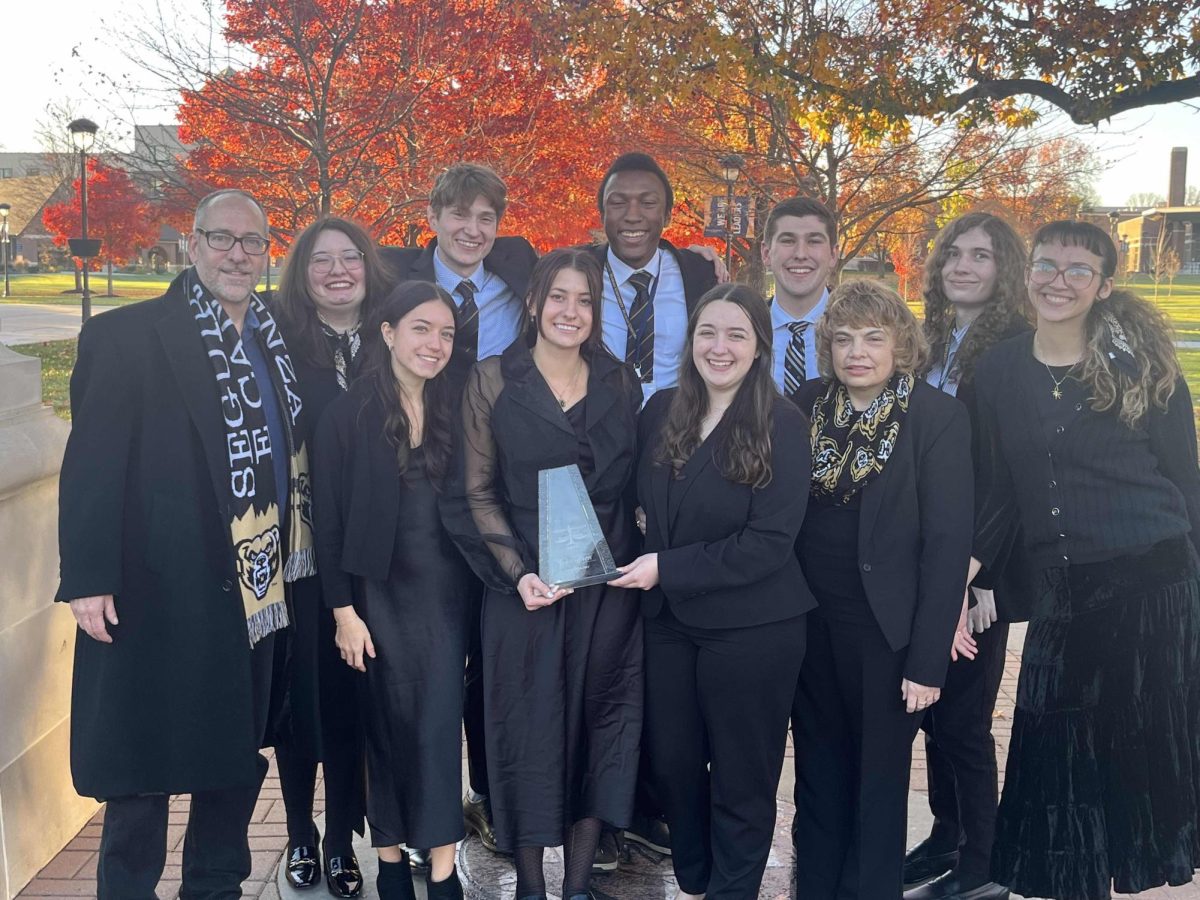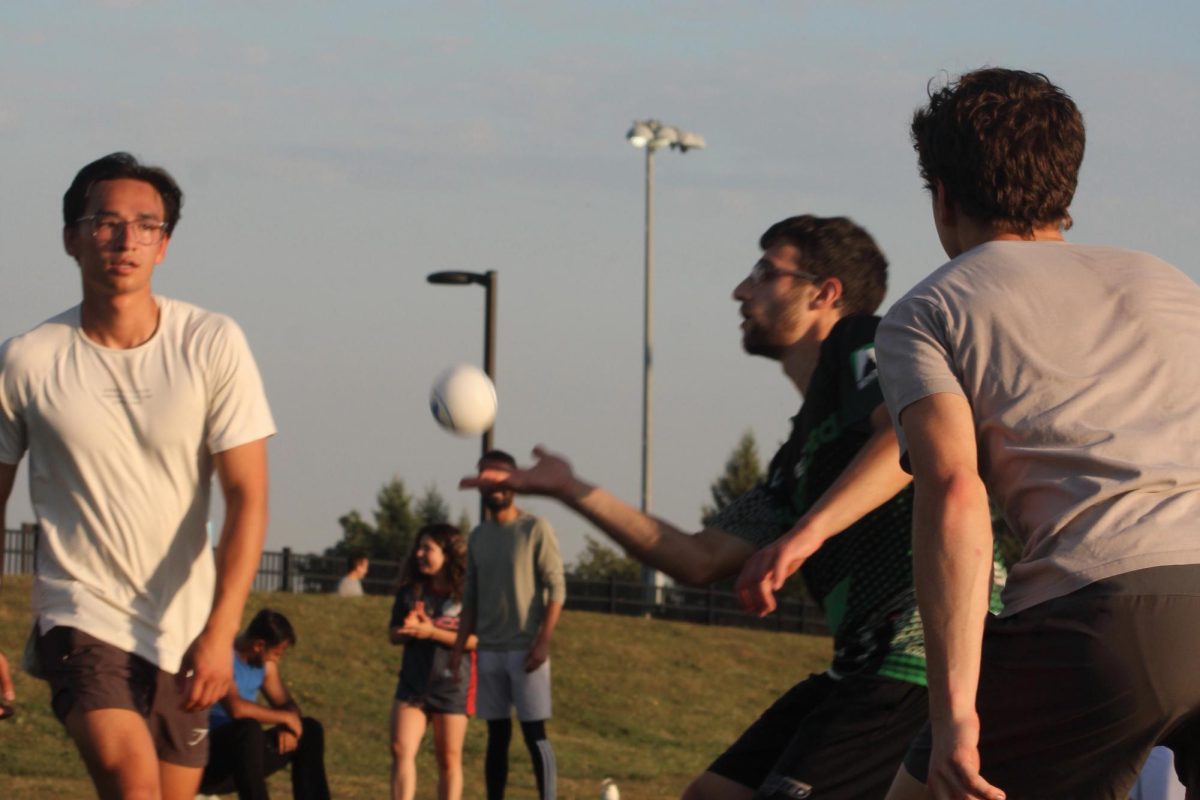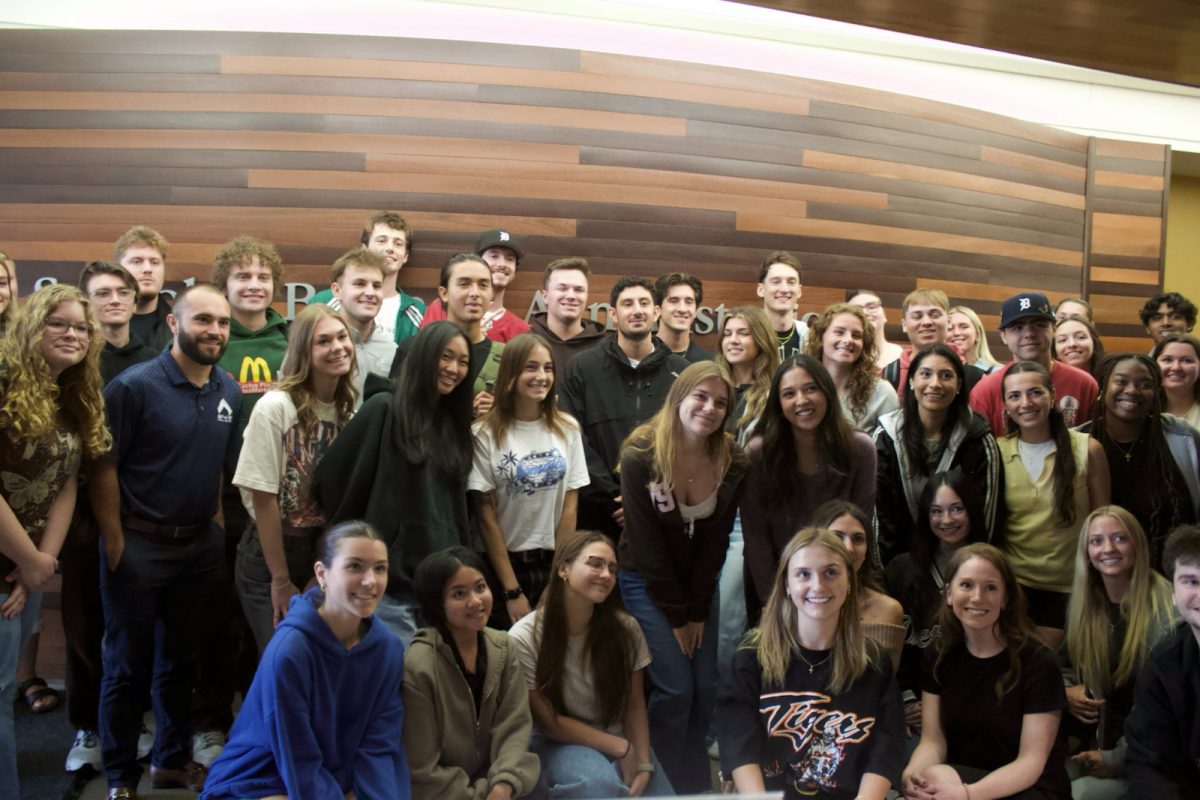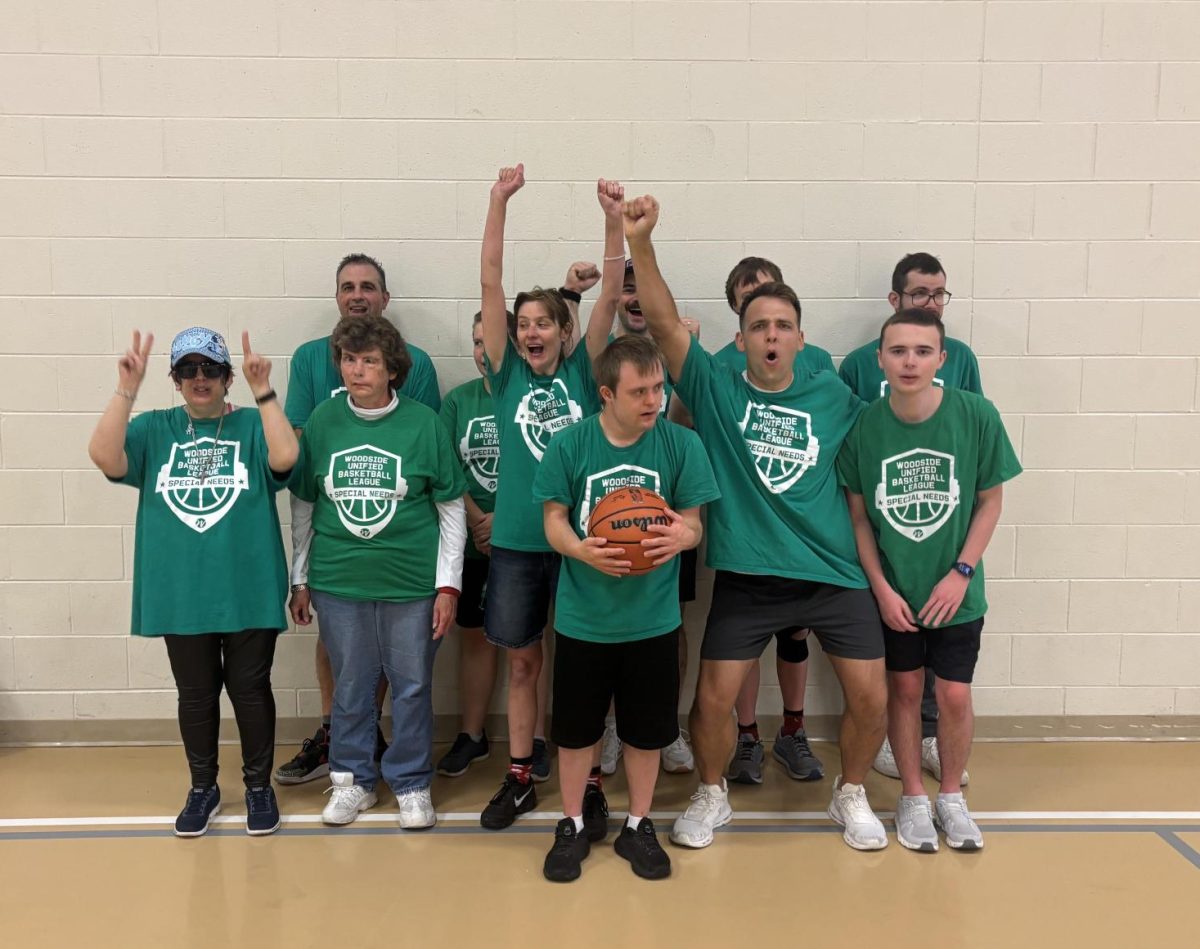On Nov. 18, the Oakland University Ethics Bowl team competed in the Central States Regional for the Intercollegiate Ethics Bowl (IEB) competition, hosted by the Association for Applied and Practical Ethics (APPE).
The team—Payton Bucki, Calla Bazinski, John Rubarth, Ethan Pemberton and Erika Luft—won first place at the competition, the first time since 2019 that an OU Ethics Bowl team has accomplished such a feat. This February, the team will go to Cincinnati, Ohio to compete in the 2024 IEB National Competition.
An Ethics Bowl competition can be described as a debate about an ethical dilemma. Teams are given 10 minutes to present their argument before answering questions from the opposing team and the judges.
Ethan Pemberton, a first-year Ethics Bowl competitor, explains how much preparation is done before the competition.
“Essentially, your job is to memorize all the facets of that case and work with your teammates to construct a 10-minute presentation that you’re all really well informed on,” Pemberton said. “It’s two and a half months of research, memorization and writing, for a total of 30 to 45 minutes of trying your best not to stumble over all your words. It’s a lot of build-up for a couple of small moments, but it is so worth it.”
The best way to prepare for competition is to communicate your ideas and perspectives on an ethical dilemma with others. Fortunately, OU’s Ethics Bowl program had enough members to make two teams this year. One team was comprised mostly of returning members, and the other team was exclusively new members.
“In the past, we haven’t had a ton of interest in the team, so we’ve only been able to field one team with, like, five or six members,” Rubarth said. “This year, we had nine members, so we were able to field two teams, so that was awesome. It was an opportunity to practice more against each other, having more people around.”
Pemberton explains how having two teams was helpful when preparing for regionals.
“Getting to run through the cases and hear the feedback multiple times starts to get you prepared for not only what the weaknesses in your argument are, but also what kinds of questions other people would likely be asking,” Pemberton said. “You can go in knowing which couple of areas kept coming up with questions and prepare for that.”
While Ethics Bowl competitions mainly involve research and preparing for questions, speech skills are also an important aspect of competition.
Rubarth explains how an Ethics Bowl member would sharpen their speech skills.
“The key is understanding,” Rubarth said. “When you truly know and understand the topic that you’re talking about, it shows, and it leads to clarity in speeches.”
Another method Rubarth gave for people to work on their speech skills was figuring out their own speaking style.
“Some people like to memorize verbatim, others like to focus on remembering key phrases to keep them structured, some rely on jokes, there is variability in tone,” Rubarth said. “Regardless, understanding one’s style and adhering to it tends to yield success.”
For students interested in trying out for the team this upcoming spring, they may reach out to coach Lisa Campbell at [email protected].






